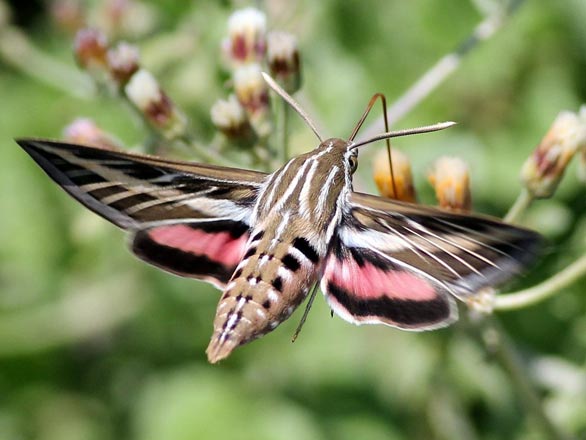Perhaps two of the most striking moth caterpillars to be seen by the average Nevadan are those of the tomato and tobacco Sphinx moths, Manduca quinquemaculataand Manduca sexta, respectively. These distinctive caterpillars, often called hornworms as larvae, are best known as the ravenous pests of plants in the family Solanaceae, especially tomatoes, potatoes and tobacco. In most small-scale applications, the common caterpillars can be kept below economic thresholds by simply monitoring and hand removal. The moth, which is in the family Sphingidae (Sphinx moths), also contains many other beautiful caterpillars and adults that are not pests.

K. Burls and J. Newton
2019,
Know Nevada Insects: Sphinx Moth,
Extension | University of Nevada, Reno, FS 19-16


